Date: 7. February 2024
Time to read: 2 min
8 February is a Slovenian cultural holiday - it is also known as Prešeren Day, in memory of the poet Dr France Prešeren, who died in 1849. It was declared a public holiday in 1945 by the Presidency of the Slovenian National Liberation Council. The new state also kept it and declared it a public holiday in 1991.
On the eve of the holiday, a central national celebration is held to award the Prešeren Prizes and the Prešeren Fund Prizes, which are the highest honours of the Republic of Slovenia for achievements in the field of art. The Prešeren Prize winners for 2024 are the poet Erika Vouk and the ballet dancer and choreographer Henrik Neubauer. The Prešeren Fund Prizes are awarded to poet Miljana Cunta, actress Jana Zupančič, mezzo-soprano Nuška Drašček, illustrator Ciril Horjak, director Sara Kern and graphic designer Tomato Košir.
-
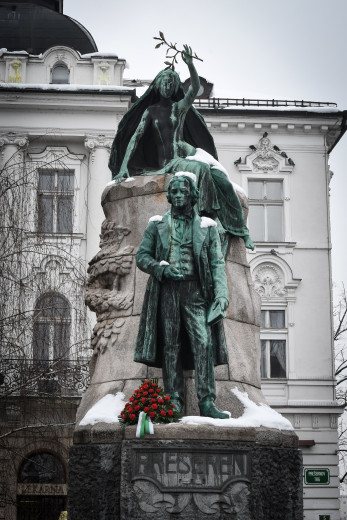 With Poetry, Prešeren placed himself on an equal footing with the great writers of the Slavic language area, such as the Russian poet Alexander S. Puškin, the Polish Adam Mickiewicz and the Czech Karel Hynek Macha. Photo: Nebojša Tejić/STA
With Poetry, Prešeren placed himself on an equal footing with the great writers of the Slavic language area, such as the Russian poet Alexander S. Puškin, the Polish Adam Mickiewicz and the Czech Karel Hynek Macha. Photo: Nebojša Tejić/STA
-
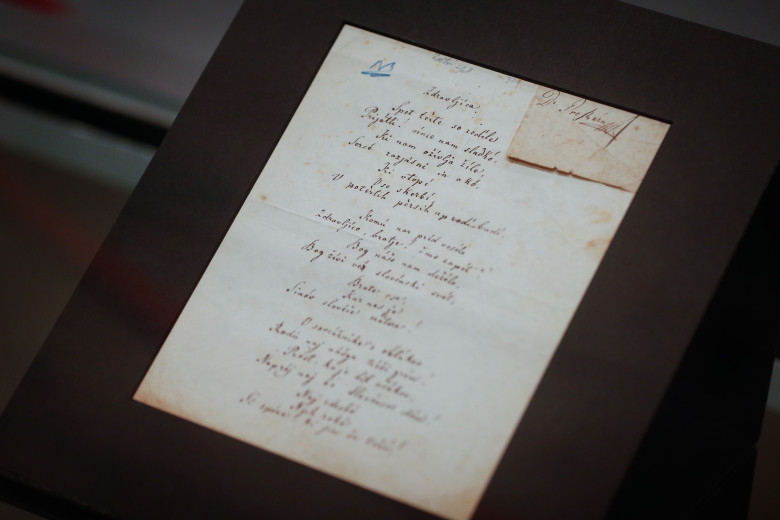 The symbolic value of the Hymn from 1848 onwards is that it is understood as a celebration of the Spring of Nations as an important movement in the history of Europe and a foreshadowing of the realisation of its ideas. Photo: Anže Malovrh/STA
The symbolic value of the Hymn from 1848 onwards is that it is understood as a celebration of the Spring of Nations as an important movement in the history of Europe and a foreshadowing of the realisation of its ideas. Photo: Anže Malovrh/STA
Dr. France Prešeren was of exceptional importance for the history of the Slovenian nation, and most Slovenians understand the deep meaning of the aspirations for personal and national freedom. Prešeren's work is a necessary, inevitable and eternal part of the Slovenian cultural tradition. France Prešeren - lawyer, poet, writer, thinker - has won for himself a position in Slovenian society that resembles a natural phenomenon rather than a flesh-and-blood human being. It is impossible to exclude him from the collective Slovenian spirit, because he is, as it were, one with that spirit. The presence of his name and image everywhere - in squares, streets, awards, banknotes, in the theatre - is only a superficial manifestation of the poet's influence.
-
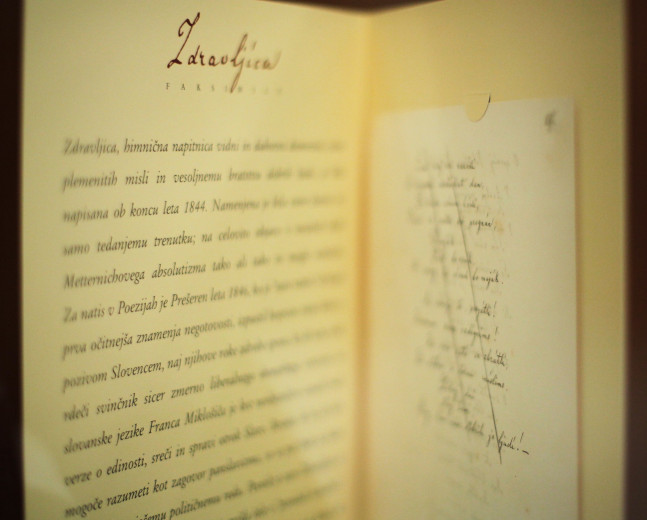 A censored poem, prepared for publication in 1846 in the Poetry collection. Prešeren himself had it excluded after the censor Franc Miklošič marked the stanza "Unity, Happiness, Reconciliation" as a stumbling block. The Zdravljica was then published in its entirety, but with a few changes, only in 1848. Photo: Daniel Novakovič/STA
A censored poem, prepared for publication in 1846 in the Poetry collection. Prešeren himself had it excluded after the censor Franc Miklošič marked the stanza "Unity, Happiness, Reconciliation" as a stumbling block. The Zdravljica was then published in its entirety, but with a few changes, only in 1848. Photo: Daniel Novakovič/STA
-
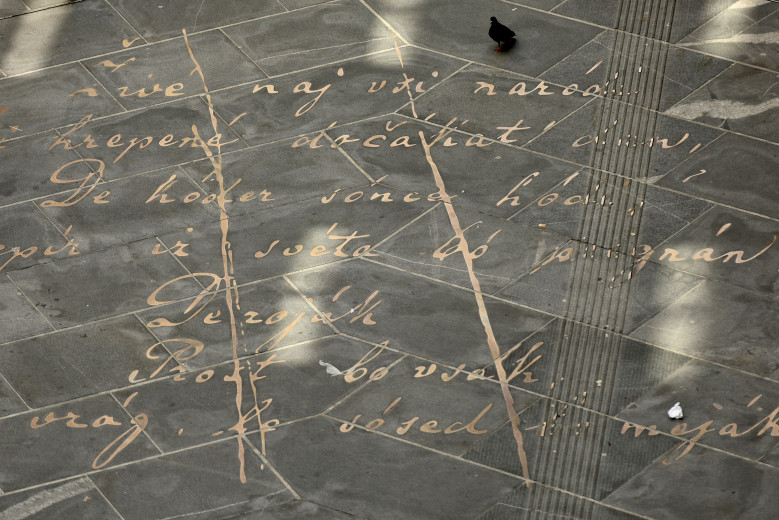 Slovenia justified the European significance of its anthem by saying, among other things, that "France Prešeren raised the Slovenian language to a European level with his collection of poems Poezije". Photo: Tamino Petelinšek/STA
Slovenia justified the European significance of its anthem by saying, among other things, that "France Prešeren raised the Slovenian language to a European level with his collection of poems Poezije". Photo: Tamino Petelinšek/STA
-
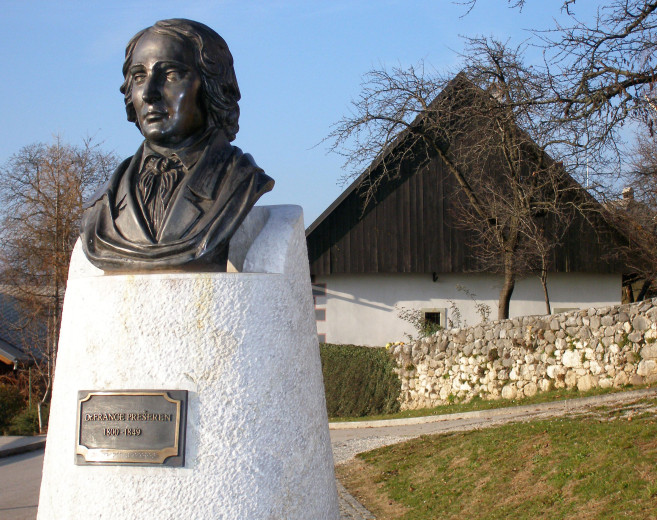 France Prešeren was born on 3 December 1800 into a peasant family in Vrba, Gorenjska. He was the third child and first son of Mina and Šimna. Photo: Tinkara Zupan/STA
France Prešeren was born on 3 December 1800 into a peasant family in Vrba, Gorenjska. He was the third child and first son of Mina and Šimna. Photo: Tinkara Zupan/STA
Zdravljica is the culmination of Prešeren's political poetry. It was written in 1844 during a period of strict political censorship in the former Austrian monarchy, of which Slovenia was a part. Because of the censorship, the poem could not be published in Prešeren's "Poems", so it could only be published after the fall of Metternich's absolutism and the abolition of censorship in 1848.
This poem was extremely important in the history of the formation of Slovenians as a modern European nation; the poem was particularly topical during the War of National Liberation during the occupation in 1941-45, and it was during Slovenian independence (1990-1991) that the idea of Prešeren's "Comfort" as the anthem of an independent Slovenia was born. The idea was accepted by a large majority. His thought was certainly ahead of its time.


